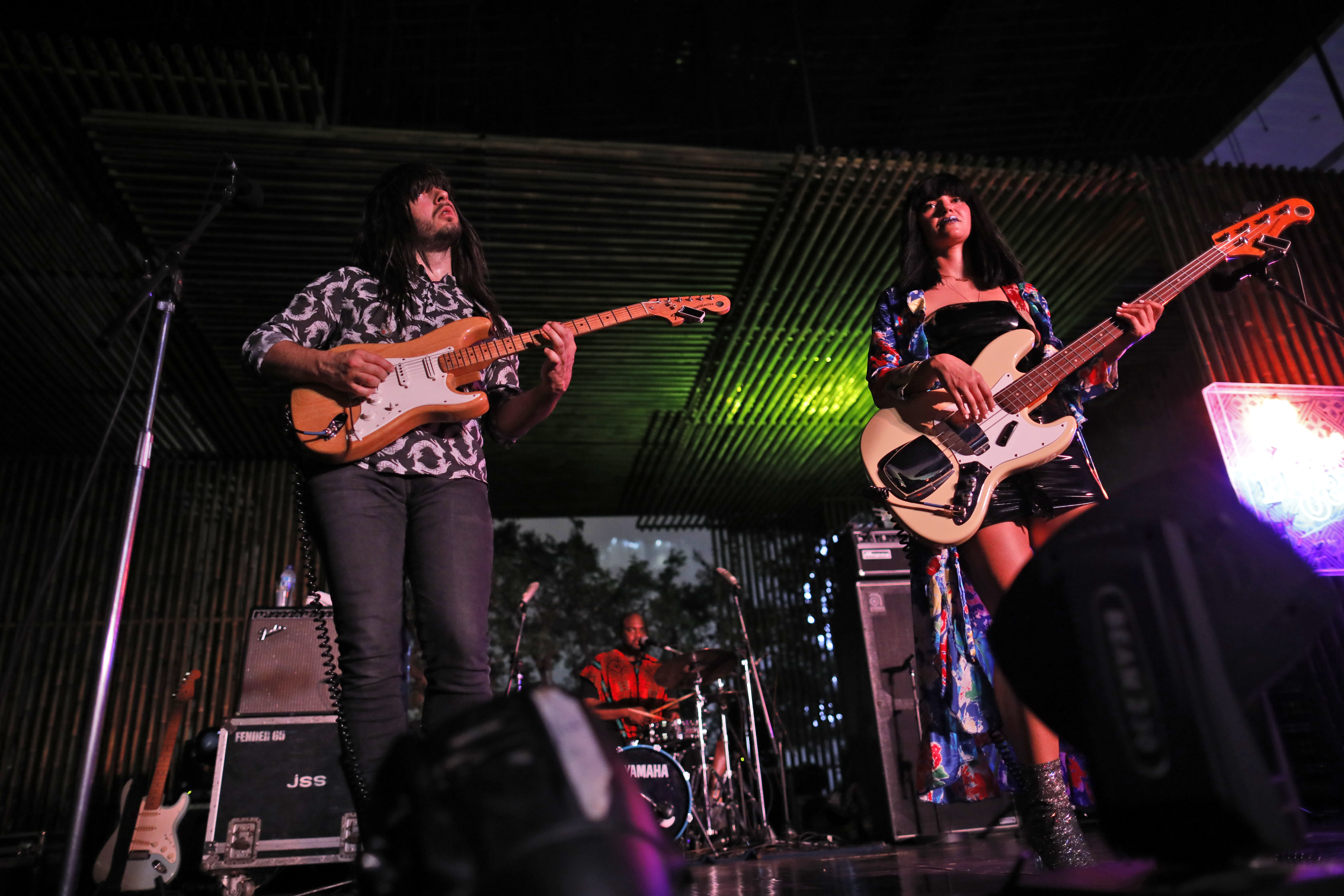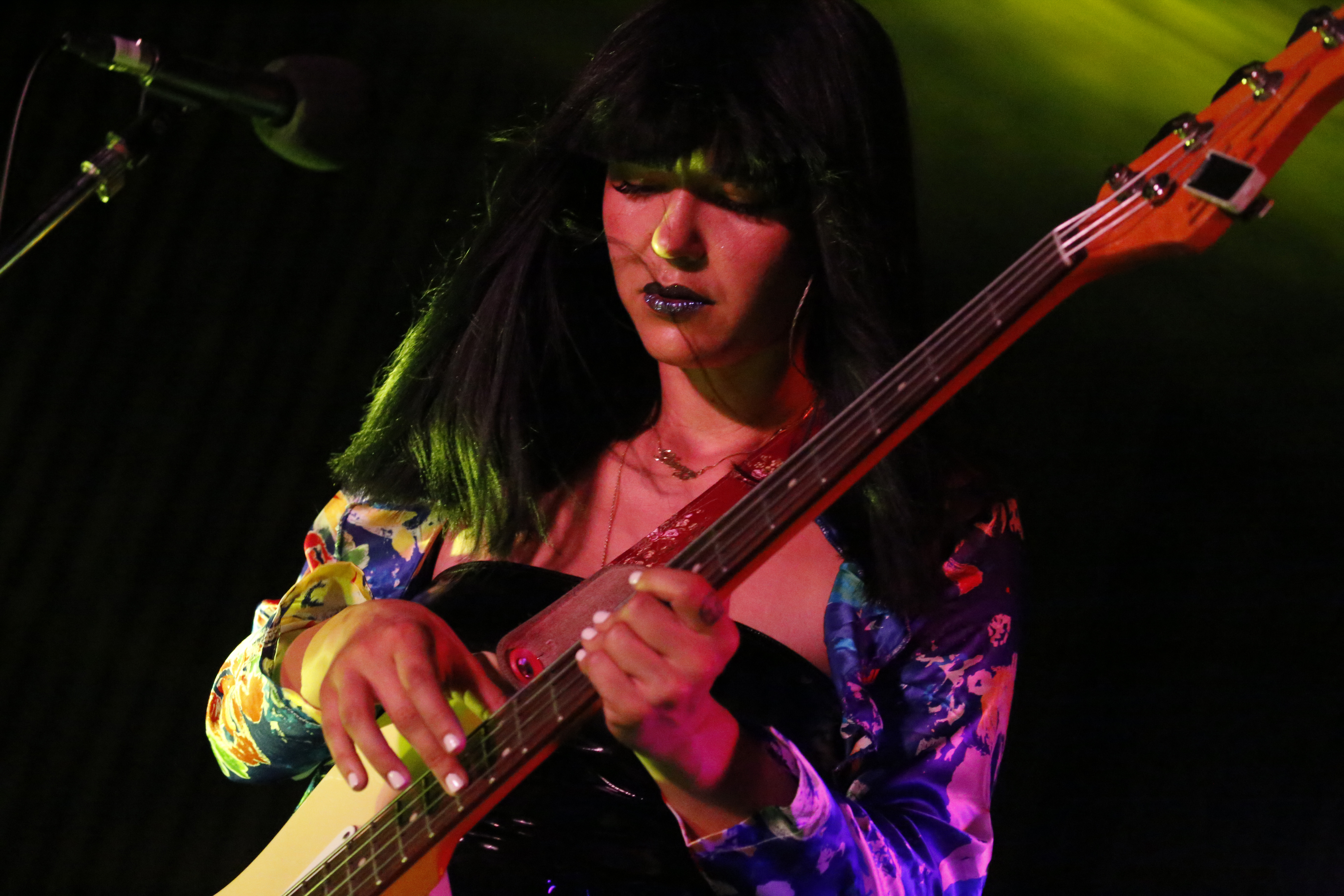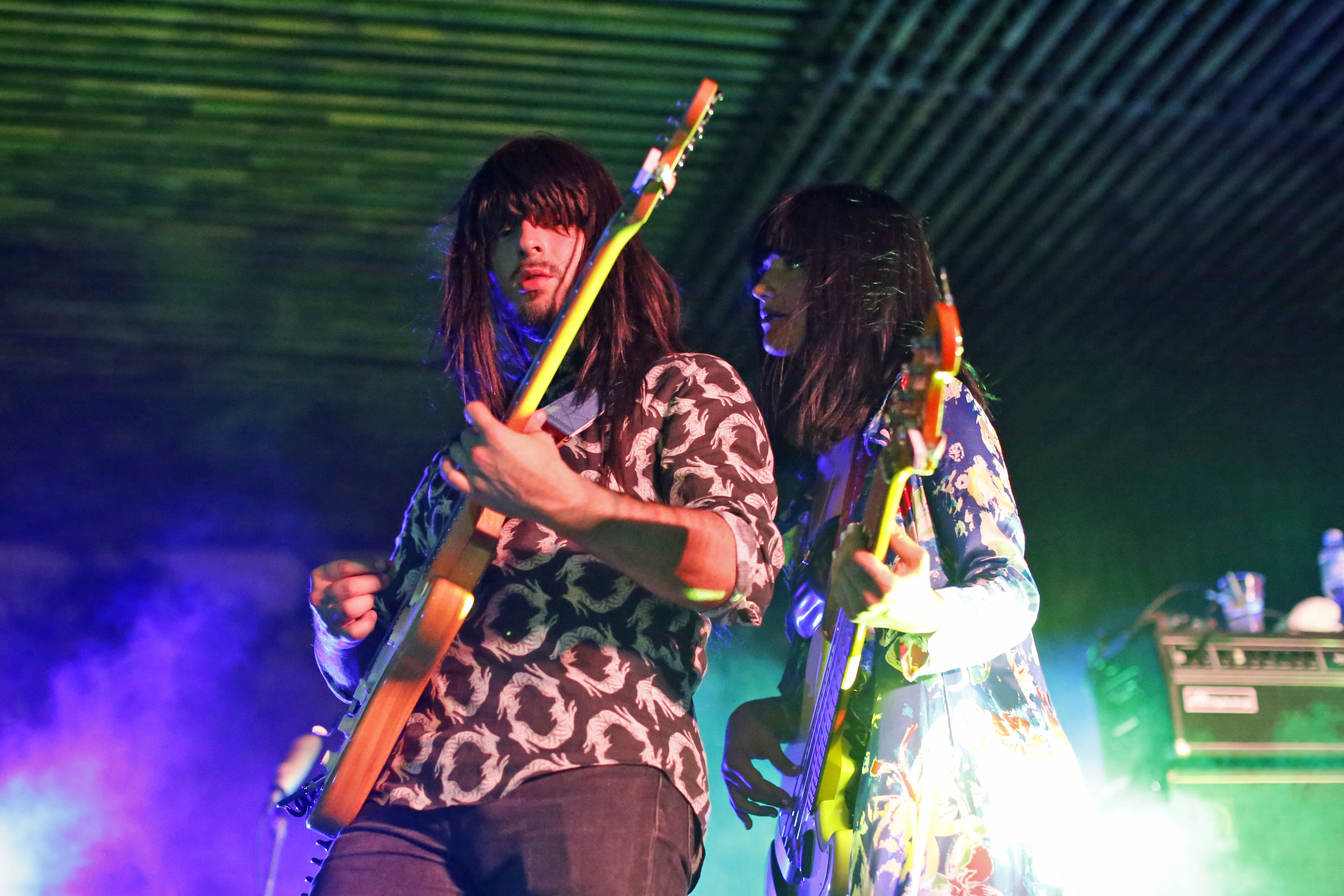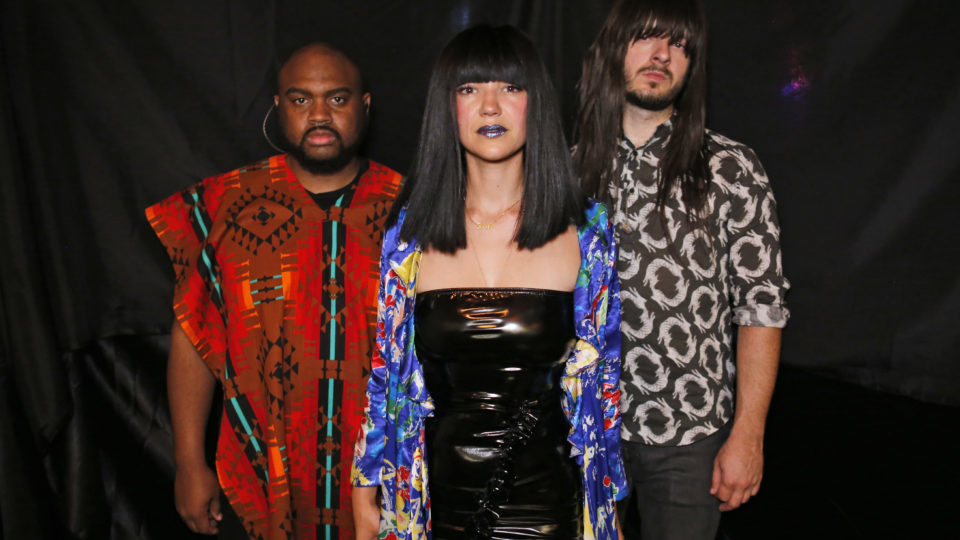The band from Houston, Texas, with a Thai name that means “airplane” got off the ground partly because of an inadvertent change of flight plans 10 years ago.
Laura Lee and Mark Speer were planning to fly to Latin America, but when the right visa didn’t come through, and the airline gave them 24 hours to rebook their trip, they hastily switched to Thailand.
On their trip through Bangkok, Cha-am, and Chiang Mai, the future bassist and guitarist for Khruangbin became enamored with what they called “noodle house music,” and started collecting cassette tapes of Thai pop music recorded from the mid-1960s to the early 1980s.
Back home in Houston, inspired by electric molam and by Thai bands influenced by British guitar instrumental band The Shadows — Lee and Speer began performing and recording as a guitar-and-bass duo. Their bass-heavy, dub-psychedelic, surf-meets-world-music instrumentals quickly caught the attention of British music producer/DJ Bonobo, who invited them along on his 2010 tour of the States.
Fired up after the Bonobo tour, they brought in drummer Donald ‘DJ’ Johnson and formed Khruangbin. Lee came up with the band’s name while she was trying to learn Thai from Rosetta Stone lessons. “I just liked the sound of it,” she says in interviews.

Khruangbin fine-tuned its genre-busting sound profile in a drafty barn in the small town of Burton, Texas, population 300. Their first recording, A Calf Born in Winter, ended up on Bonobo’s 2013 Late Night Tales compilation. Their debut album, The Universe Smiles Upon You (2014), gathered a devoted following, including punk godfather Iggy Pop and K-pop superstar Lee Hyori. They’ve since toured with Father John Misty, Tycho, Massive Attack, and Chicano Batman, and played festivals like Glastonbury, Bonnaroo, SXSW, and Thailand’s own Wonderfruit in 2017.
The trio played Bangkok again a few months ago for a sold-out show at the Helix Garden, in EmQuartier mall, in support of their second album, Con Todo El Mundo, released at the beginning of this year.
I caught up with the band while they were in town, and spoke with Lee, Speer, and Johnson about their celebrated Thai roots, their songwriting process, and the band members’ simple but seductive visuals.
For me, the band’s Thai-ness comes to the fore most discernibly in “Dern Kala” and “Two Fishes and an Elephant,” both tracks that wear a luuk thung aura. The songs are not Thai covers but rather completely original. Yet Lee bounces basslines like a Thai veteran, while Speer’s guitar spits out chord changes and note choices rarely heard outside Thailand.
“To me that style of playing is challenging yet familiar at the same time,” says Speer when I ask him how he’s able to capture the sound so effortlessly. “I really like the fact that in luuk thung and molam the changes don’t line up as you’d expect, coming from a Western musical tradition.”
Speer humbly asserts that as much as he appreciates and respects Thai funk, he doesn’t think of himself as someone who has mastered it in any way.
“I’m not pressing rewind to learn licks and phrases,” he says. “It’s just an overall vibe we went for when starting out.”

As for Lee’s bass-playing, “Basically those early songs represent me learning to play bass, and while I was learning I was listening to a lot of Thai music,” she says. “I don’t think of myself as playing bass in a Thai way, and if I am it’s subconscious.”
Meanwhile Johnson’s drumming comes across as perfectly focused and minimal, a style he says comes naturally.
“I’ve never been a busy drummer, and in fact I stopped playing for a while because other drummers in Houston were so focused on flash technique.”
“DJ’s drumming is really polarizing,” adds Speer. “Some people say he’s amazing, while others say he’s not doing anything.”
Speer claims the band doesn’t consciously set out to play certain styles when composing and recording. One the new album, the Iranian pop, Latin, Afrobeat and Southeast Asian flavor profiles, along with 1990s breakbeats and early hip-hop grooves, seeped into the songwriting process without any planning.
“We actually tried laying out concepts for the first record,” he says. “And it just didn’t work.”
“Yes, we were listening to Iranian pop at the time,” adds Lee. “But it came in via osmosis.”
Despite the impression one might get listening to Khruangbin in concert or on recordings, the compositions aren’t guitar-led, according to Speer. He explains that the writing process begins with DJ, who creates drum loops and then sends them to Lee, who adds bass and passes the tracks on to Speer.
“It’s all bass and drums, and I adapt guitar changes to the basslines,” he says.
Once the basic instrumental parts are ready, they record everything live in the Burton barn, using drums rather than breakbeats.
“Then we cut everything up in the computer, move it around, and decide what works best where,” says Speer. “After the recordings are finished, we learn to play the tracks in their final form, and then go out on tour. It’s not just us jamming in a room.”

As anyone who has seen Khruangbin play live will attest to, fashion is another part of the band’s appeal.
Speer and Lee wear similar Prince Valiant-cut wigs, a practice they claim helped them move from stage to merch stand without being recognized during early tours.
Lee wears a different outfit — typically shiny, colorful, and form-fitting — for every show, even when tours last eight weeks or more.
“I have a system,” she says. “Up-and-coming London designers lend me outfits, I wear them, post pics on Instagram, and then send them back. Right now, I have enough clothes to finish the Asia tour, and when back in London for the Europe leg of this tour, I’ll pick up a new batch.”
Guitarist Speers says he’s been wearing the same Tejano western suit since the band started the current tour.
“I bought it in a western shop in Houston called El Patron,” he says. “The kind of place Mexican musicians go to outfit their entire bands.”
Johnson, meanwhile, rocks a shaved head and Mexican-style ponchos he has cut and made to order in Houston, a look that goes well with the band’s Spaghetti Western esthetic.
The Khruangbin formula — the eclectic-yet-cohesive chill funk, their oddly compelling look, and the constant touring–is working, and the band knows it.
“Something has shifted,” says Lee. “It’s completely unexpected, to be honest, but our fan base is growing at a steady pace.”
I ask whether they might soon be tempted by offers from famed producers to record in real studios.
“We’re extremely stubborn,” says Speer. “Our sound was born in a barn, so even if we move, it would have to be something similar, somewhere remote. We don’t like studios.”




